
One of my favorite lessons in the Fundamentals of Gardening course I teach for the New York Botanical Garden is on plant propagation, or as I like to call it, Making More Plants-borrowed from the title of an excellent book by Ken Druse.
Over the years, I have watched the wonderment in the eyes of hundreds of students as they realized that their gardens can be plant nurseries, that they can create their own plants from what they already own.
Learning how to propagate is a seminal moment in the life of every new gardener as they establish the seasonal tasks that will shape the routines and rituals of their craft.
There are two main types of plant propagation: sexual, from seeds; and asexual, from plant parts (also known as vegetative propagation). There are reasons to choose one form over another.
The prime value of vegetative reproduction is that it creates an exact replica, or clone, of the plant you own. There are several different vegetative propagation techniques, including layering, taking cuttings and dividing. The best method to choose is determined by the plant you want to make more of.
DARYL BEYERS is a gardening educator, designer and writer based in California. A frequent contributor to Horticulture, he is authoring a series on propagation in 2024.
Division is the most straightforward method of vegetative plant propagation and the technique most often employed by gardeners on a regular basis. The trick is to divide a single plant into two or more plants complete with roots, stems and leaves. Pro tip: The leaves can be optional, though it's good to include some foliage to kickstart growth through photosynthesis.
This story is from the {{IssueName}} edition of {{MagazineName}}.
Start your 7-day Magzter GOLD free trial to access thousands of curated premium stories, and 9,000+ magazines and newspapers.
Already a subscriber ? Sign In
This story is from the {{IssueName}} edition of {{MagazineName}}.
Start your 7-day Magzter GOLD free trial to access thousands of curated premium stories, and 9,000+ magazines and newspapers.
Already a subscriber? Sign In

Pot It Up
Shake up the containergarden with theseNorth America –native perennials

THE GARDEN PATH TO PERDITION
I WAS CRUISING RIGHT ALONG, feeling okay about myself, when I came across a list of the Seven Deadly Sins.
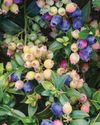
A Productive PATIO
Tiny fruit, vegetable and herb plants help gardeners maximize any sort of growing space
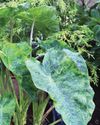
TROPICAL FUSION
A FUSS-FREE APPROACH TO USING BOLD TROPICAL PLANTS IN ANY TEMPERATE GARDEN

WINTER READING
Pass the time with any of these inspiring books
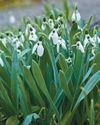
SENSING A PATTERN
Greg Coppa reflects on an odd weather year and what continued warming may mean for his Rhode Island garden
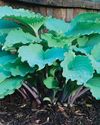
TOP-PRIZE PERENNIALS
A foliage masterpiece for shade and a late bloomer for sun

MARK WESSEL
What's new for fruit and vegetable gardeners?
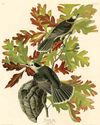
KINGS OF THE NORTHERN FORESTS
A look at the trees, shrubs and perennial plants that bolster life in Ecoregion 5

PROJECT FEEDERWATCH
Gardeners can help scientists know just where the birds are in winter